Ever wondered why Turkish meals feel more like warm family gatherings than simple dining? If you’ve ever felt uncertain about how to behave at a Turkish table; or if you simply want to experience meals the way locals do, you’re not alone.
You are the curious traveler or respectful guest, eager to understand more than just what’s on the plate. But exploring Turkish hospitality, from shoe etiquette to tea rituals, can be a lot.
That’s where we come in. With cultural insight and a passion for tradition, we’ll walk you through:
- How to behave before the first bite
- Why tea time never really ends
- The deeper meaning of shared plates and shoes-off rituals
Keep reading to discover how to show respect, connect with locals, and truly savor Turkish hospitality.
By the end, you’ll know how to dine like a local; and feel deeply welcomed at every Turkish table.
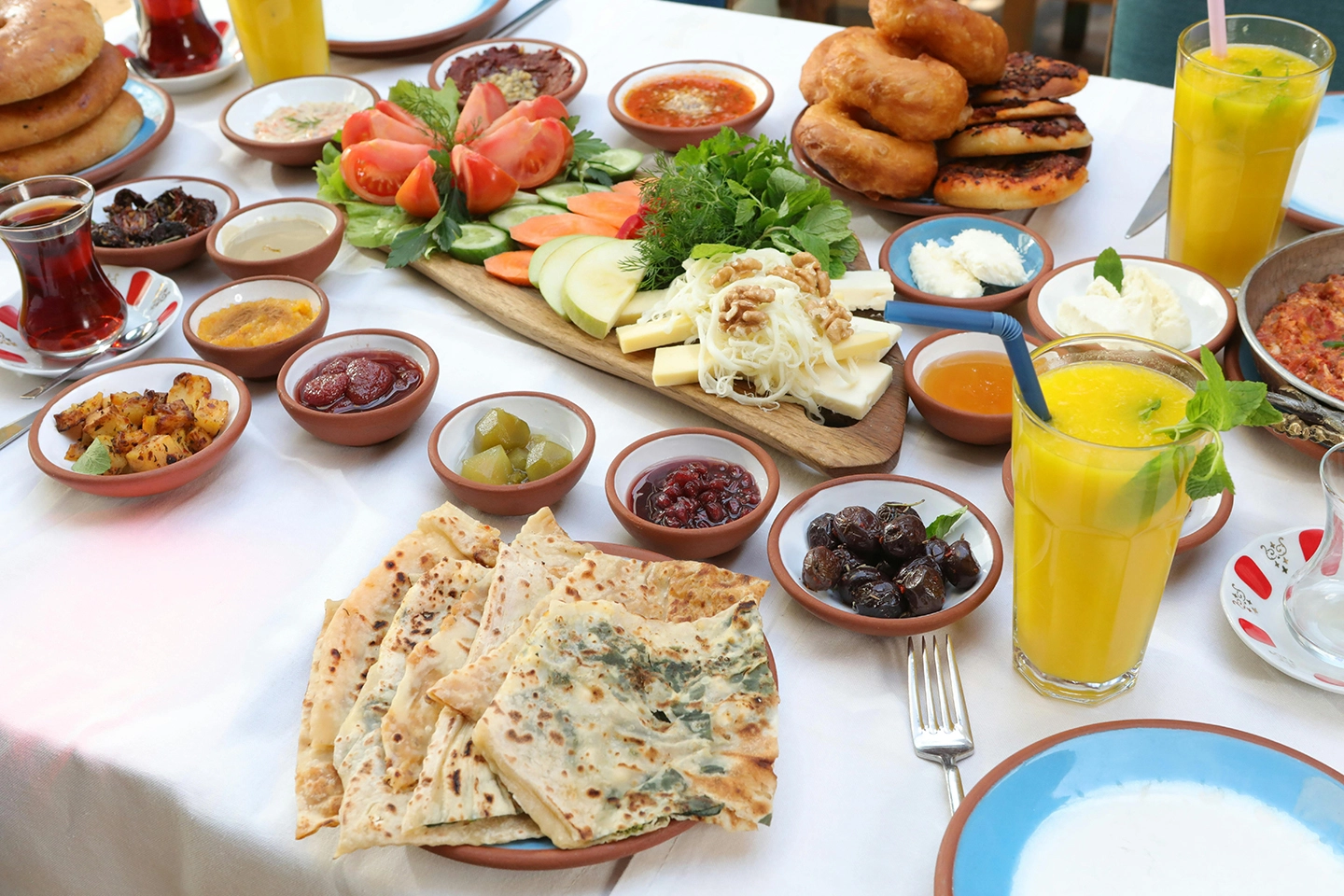
Inside the World of Turkish Dining Etiquette
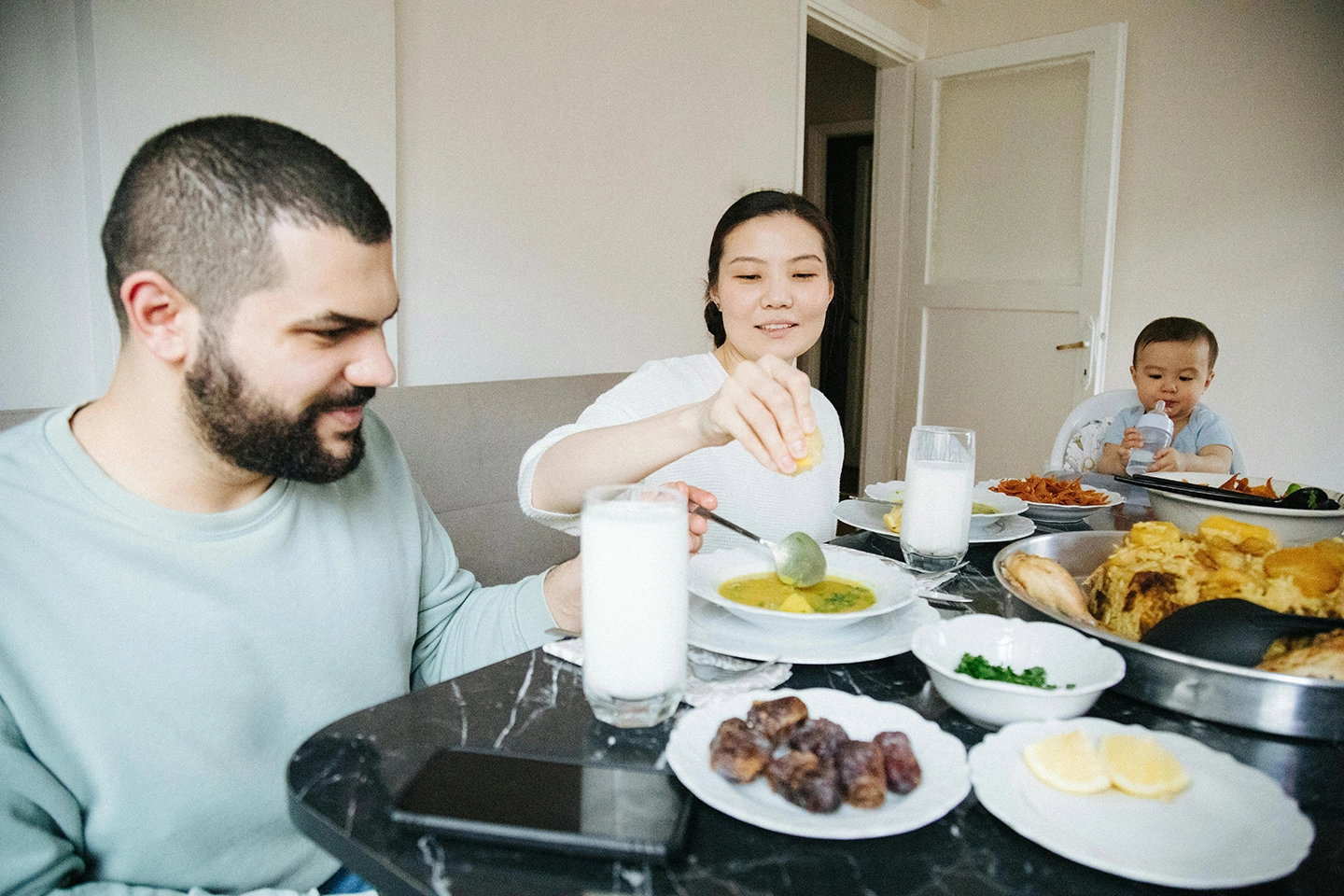
Dining in Turkey is much more than just eating; it is an act of togetherness, gratitude, and deep respect. From waiting for the eldest to begin the meal to using the right hand for serving and eating, every small gesture at the Turkish table holds meaning.
Meals are often shared, served family-style, and filled with warm conversations.
Respect for elders, never wasting food, and always accepting offered drinks like tea or coffee; these practices are linked into the Turkish dining experience and reflect a broader value of hospitality and care for others.
But that’s just the beginning! Turkish dining etiquette is full of charming details, from saying “Afiyet olsun” before a meal to following traditional roles in seating and serving. Curious about why guests never pour their own drinks or how coffee is used as a symbol of generosity?
Follow the rest of the article to explore the beauty, spirit, and fascinating rules of Turkish hospitality. You won’t want to miss the next bite!
1. Recite Bismillah
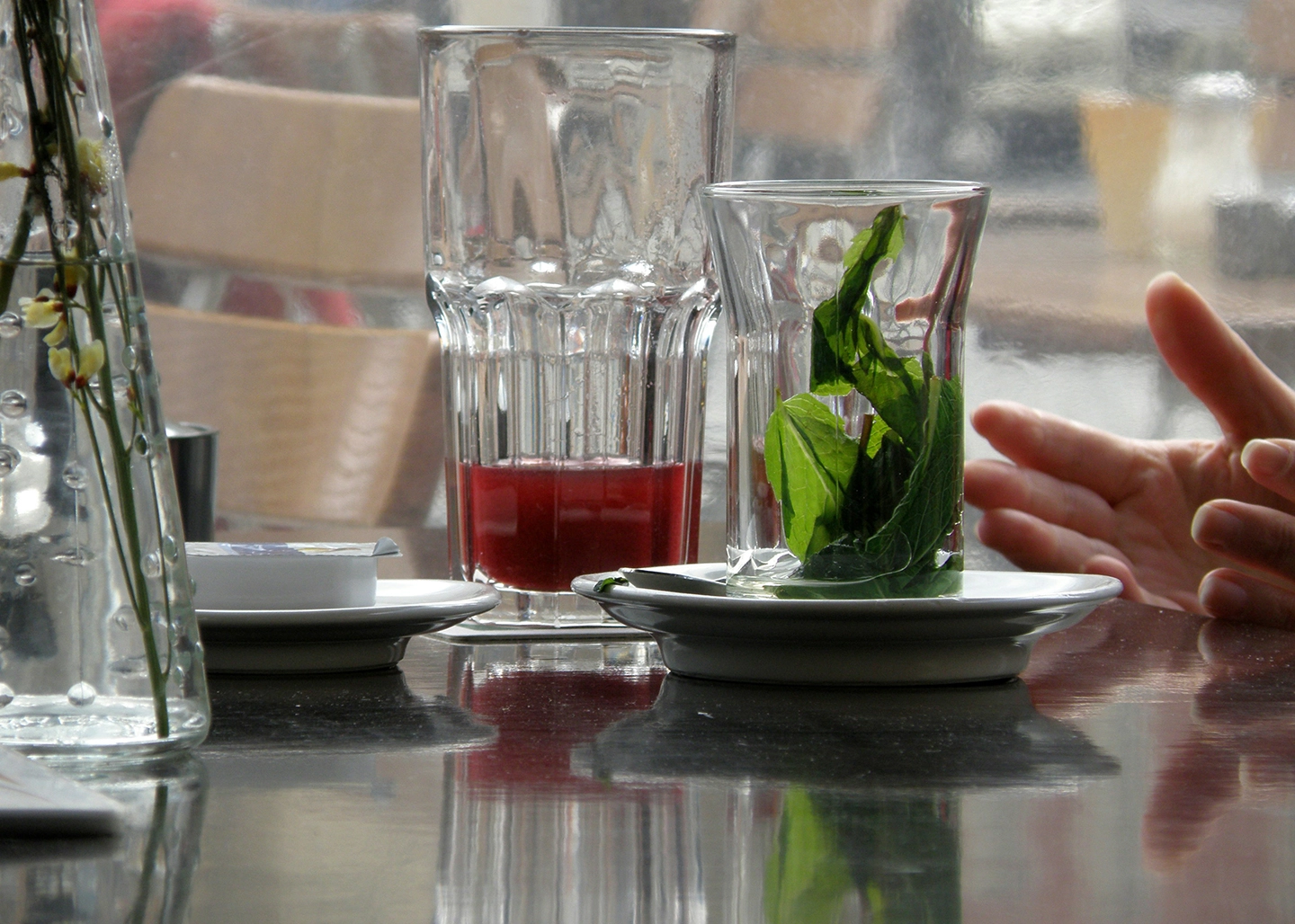
Turkish dining etiquette beautifully blends religious tradition with cultural warmth. Before a meal begins, it’s common to say “Bismillah”, which means “In the name of God.” This simple yet meaningful blessing shows gratitude for the food and respect for those who prepared it.
It’s also tradition for elders to start eating first, and then the rest of the family or guests follow; an important sign of respect in Turkish culture.
During meals, they might hear phrases like “Afiyet olsun,” meaning “Enjoy your meal,” and after eating, people often say “Elinize sağlık,” which means “Health to your hands,” to thank the cook. These expressions reflect how much Turkish people value hospitality and appreciation at the table.
Whether you’re a guest or host, sharing a meal in Turkey is always about more than just food; it’s about respect, gratitude, and connection.
See Also Turkish Costumes
2. Hospitality First
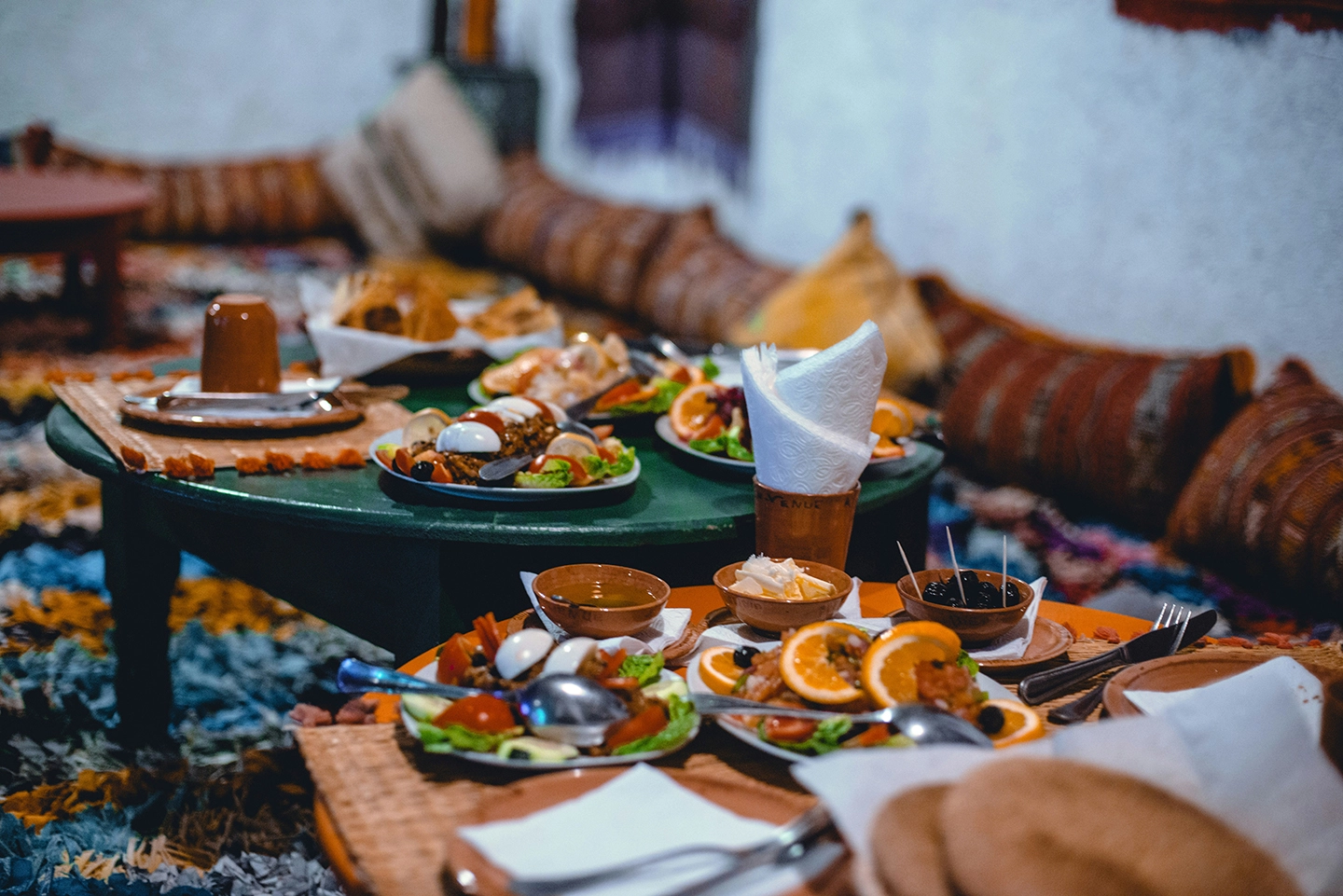
In Turkish dining culture, hospitality is more than just tradition; it’s a heartfelt expression of care and generosity. When you visit a Turkish home, you’re welcomed warmly, often with a handshake or friendly gesture.
The host takes pride in offering plenty of food and drinks, and even if you’re not very hungry, it’s polite to accept at least a small portion.
Sharing dishes from common platters is a beautiful symbol of connection and togetherness, making every meal feel like a family gathering.
Guests are always treated with great respect, especially elders or honored visitors who are usually seated closest to the host. Compliments like “Elinize sağlık” (health to your hands) are a sweet way to thank the cook, and saying “Afiyet olsun” before and after the meal adds a warm touch.
Don’t be surprised if the host keeps offering more food; it’s their way of making you feel special. And when visiting, bringing a small gift like flowers or sweets shows appreciation. In Turkey, dining isn’t just about eating; it’s about creating bonds and showing love through kindness at the table.
3. Don’t Sit Just Yet
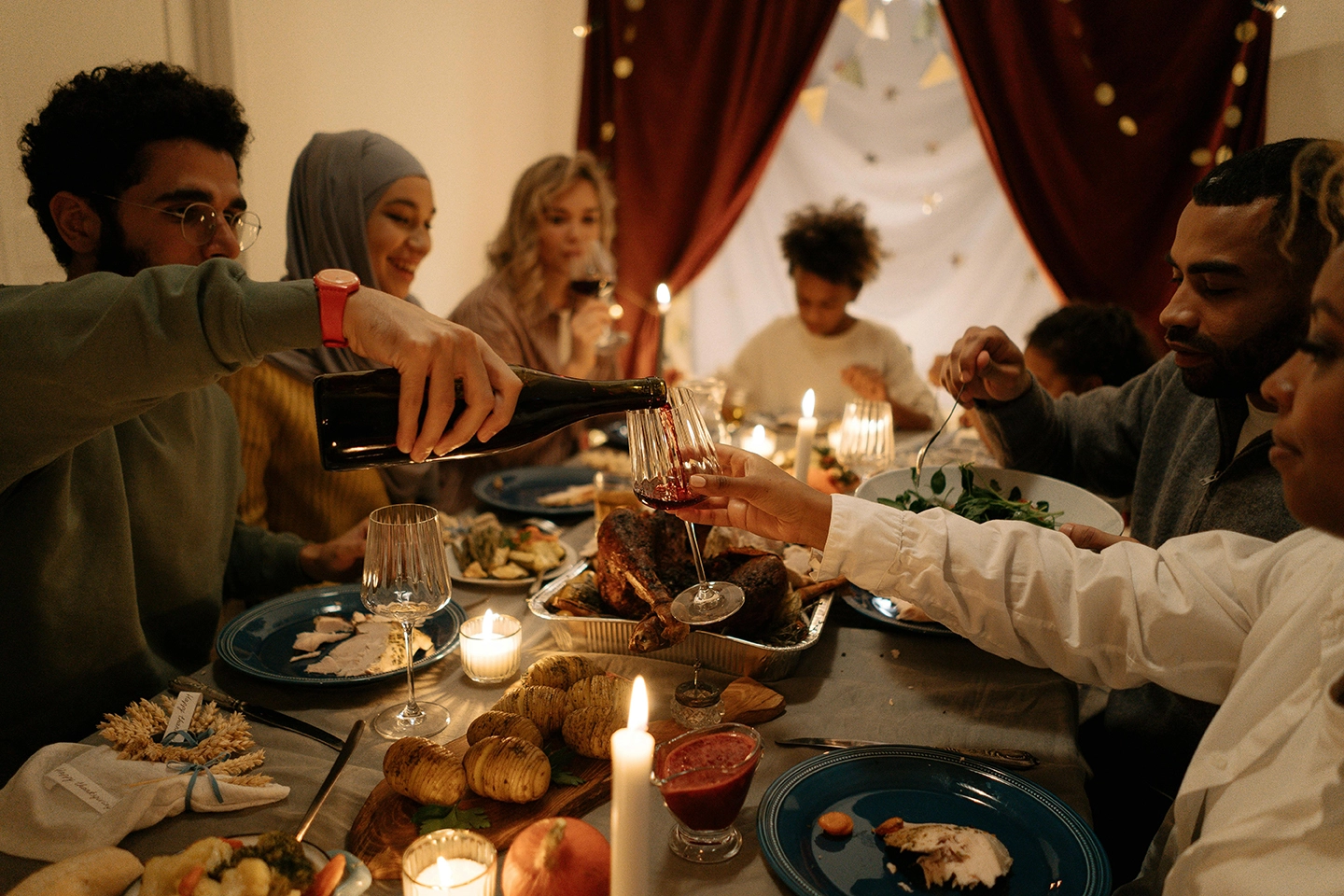
In Turkish dining etiquette, it’s important not to rush to their seat. Instead, guests usually wait for the eldest person or the host to invite everyone to sit. This small act of patience is a sign of deep respect, not just for the people at the table but also for the meal itself.
Before eating, it’s common to say “Afiyet olsun”; a lovely way of wishing everyone a pleasant meal. It’s also polite to wait until everyone has been served before you begin eating, creating a sense of togetherness and appreciation.
Manners at the table go beyond just waiting. Keeping a straight posture, avoiding resting their elbows on the table, and using respectful language all reflect thoughtfulness. Crossing their legs or showing the soles of their feet can come off as disrespectful in traditional settings.
And if they need to sneeze or cough, using a napkin and stepping away is the polite thing to do. At the end of the meal, expressing thanks with “Elinize sağlık” (Health to your hands) is a heartfelt way to show gratitude to the cook and host.

4. The Art of the Invitation
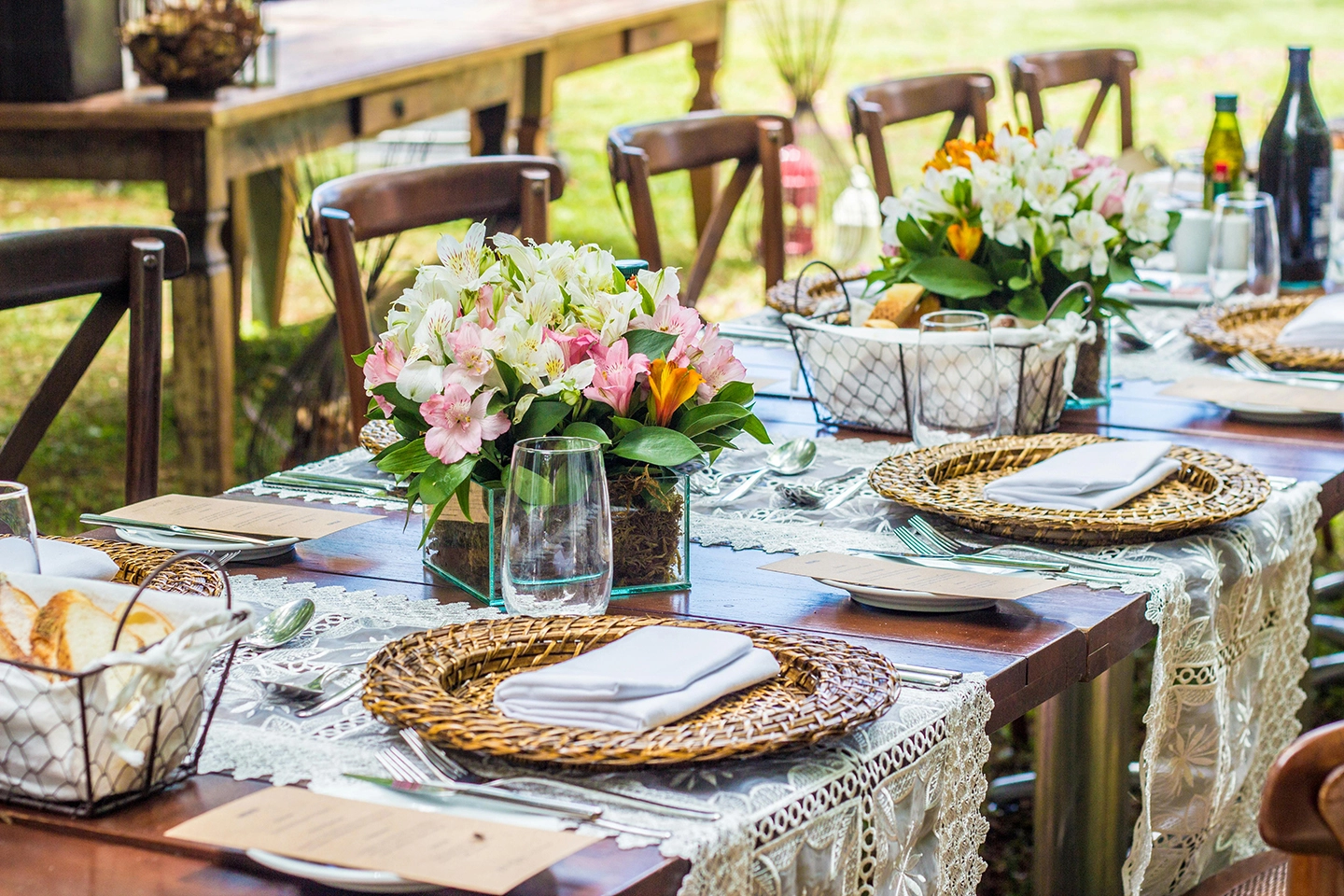
In Turkish culture, receiving a dinner invitation is more than just a casual get-together; it’s a meaningful expression of warmth and connection. A formal invitation, such as a handwritten note or a thoughtfully worded message, is seen as especially respectful and sincere.
When you’re invited to someone’s home, arriving on time (or just a little early) is a sign of good manners.
For parties, you can be a bit late, but dinners call for punctuality. It’s also a kind gesture to bring something small, like sweets, flowers, or even a little present for any children in the house.
Once you step into a Turkish home, the focus quickly shifts to friendly conversation and togetherness. If you bring something to share; like food or drinks, it’s expected to be enjoyed by everyone.
And don’t be surprised if you’re asked to take off your shoes at the door; it’s a common sign of cleanliness and respect.
Many hosts will even offer you a pair of slippers. Overall, Turkish invitations are filled with thoughtful customs that reflect the country’s deep-rooted hospitality and love for meaningful social bonds.
5. Tea Time Never Ends
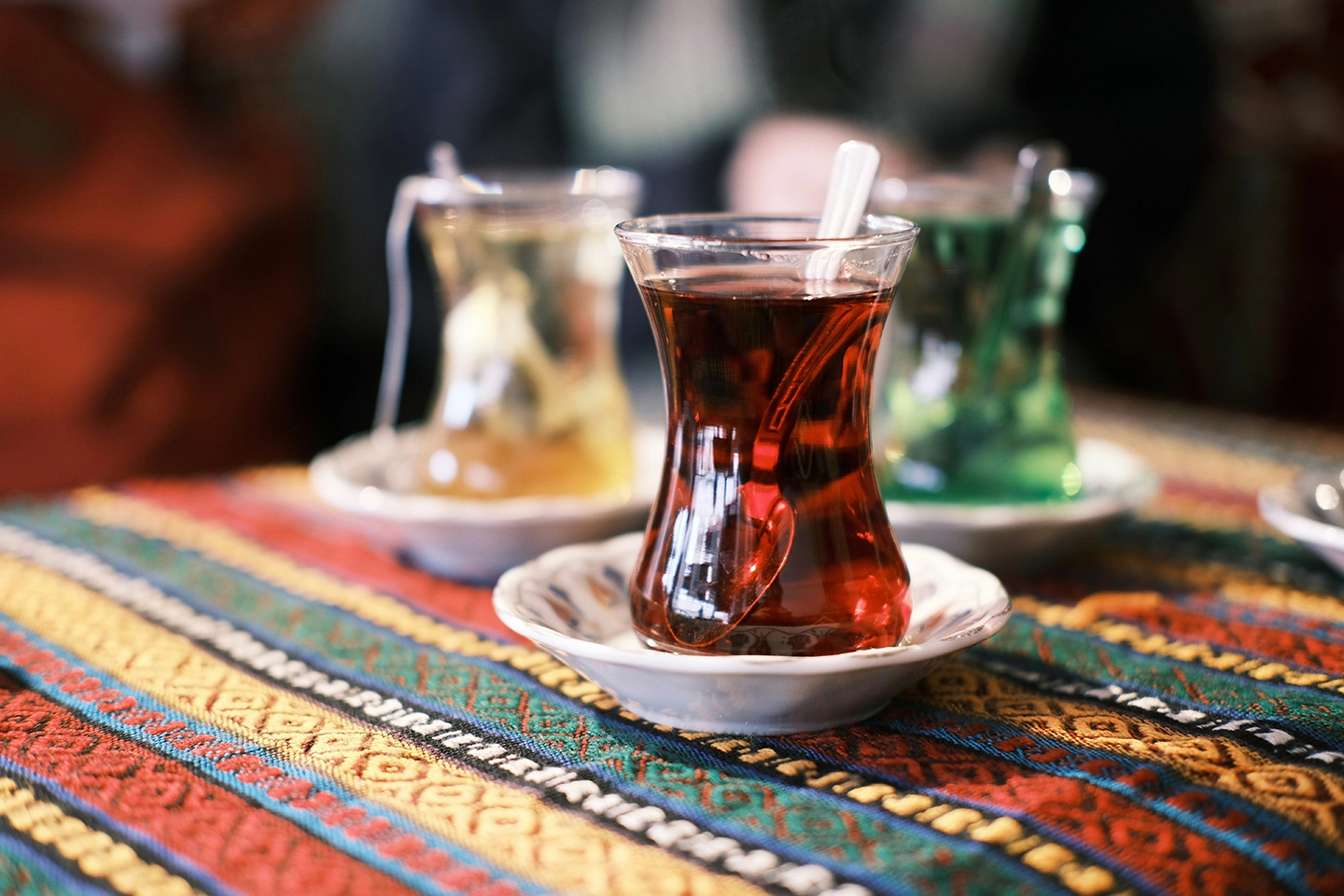
In Turkey, tea time is not just about sipping a hot drink; it’s a cherished part of social life that follows the meal like a warm welcome. After eating, tea is often served in small tulip-shaped glasses, encouraging guests to relax, chat, and enjoy each other’s company.
It’s a gentle reminder that the meal isn’t over; rather, it’s flowing into another enjoyable phase. Rushing off after the food is seen as impolite; lingering over tea is how friendships deepen and moments are shared.
Whether you’re at someone’s home, a shop, or a cozy tea garden, saying yes to tea is more than politeness; it’s joining in on a deeply rooted tradition. Refusing tea might be taken as distancing yourself from this connection.
Turkish tea, always black and never with milk, is a symbol of welcome, and it’s common to be offered several glasses.
With every warm pour, the message is the same: slow down, stay a while, and let life be a little sweeter; one sip at a time.
6. Shoes Off, Manners On
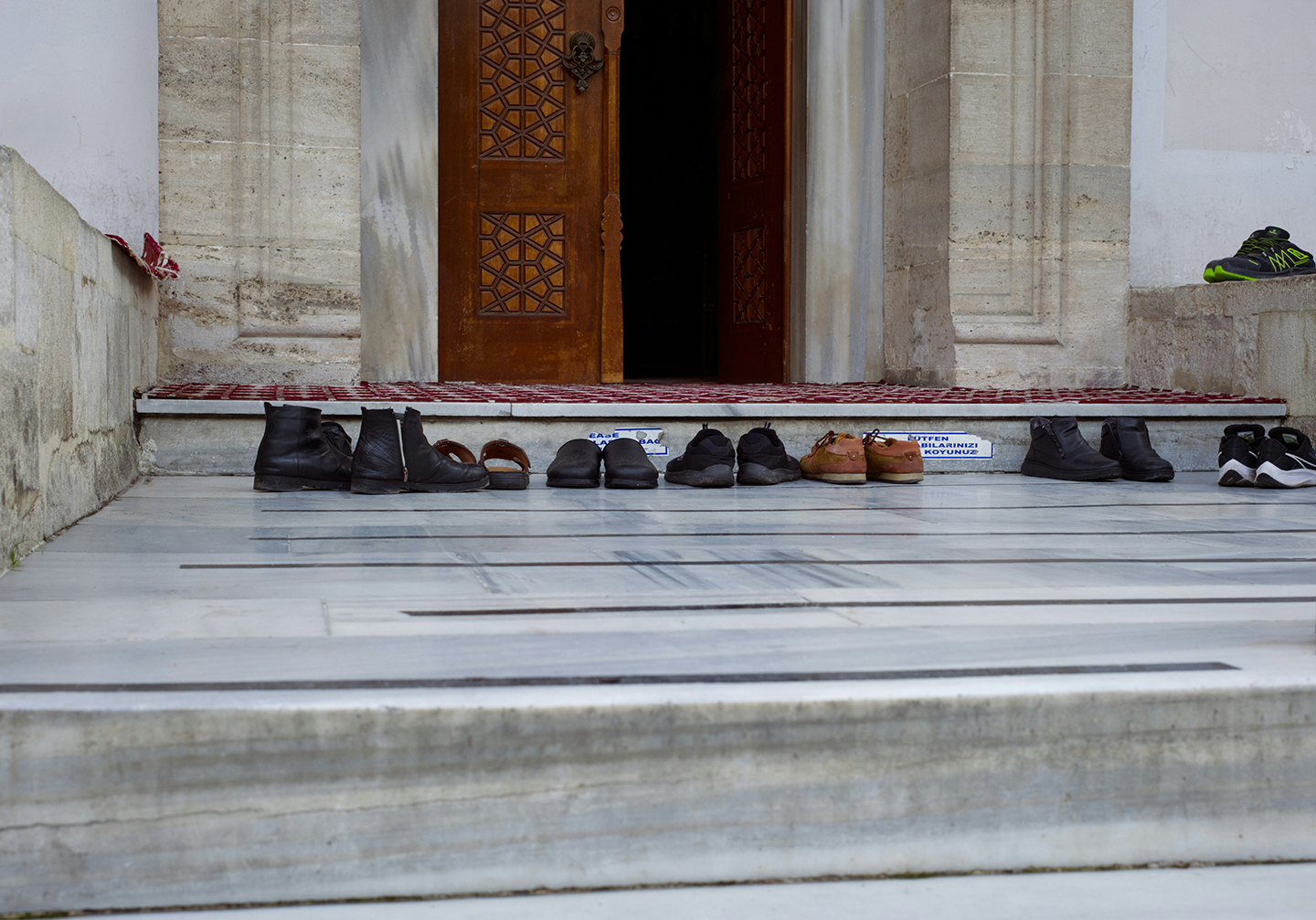
In Turkey, taking off your shoes before entering someone’s home is more than just a simple habit; it’s a heartfelt sign of respect and care. Turkish people highly value cleanliness and hospitality, so removing shoes helps keep the home clean and welcoming.
When you visit, you’ll often be offered slippers to wear inside, making it cozy and comfortable.
Even if your host suggests you keep your shoes on, it’s polite to gently insist on taking them off to honor their culture.
Beyond cleanliness, this tradition ties into deeper cultural and religious values, especially related to Islam, where cleanliness is essential in places of prayer. Also, be mindful not to show the soles of your feet or put dirty shoes on the doormat, as these actions are considered impolite.
So next time you’re invited into a Turkish home, remember: shoes off, manners on; it’s a simple way to show your respect and fit right in!
See Also What Do Turkish People Look Like?
7. Silence or Small Talk?
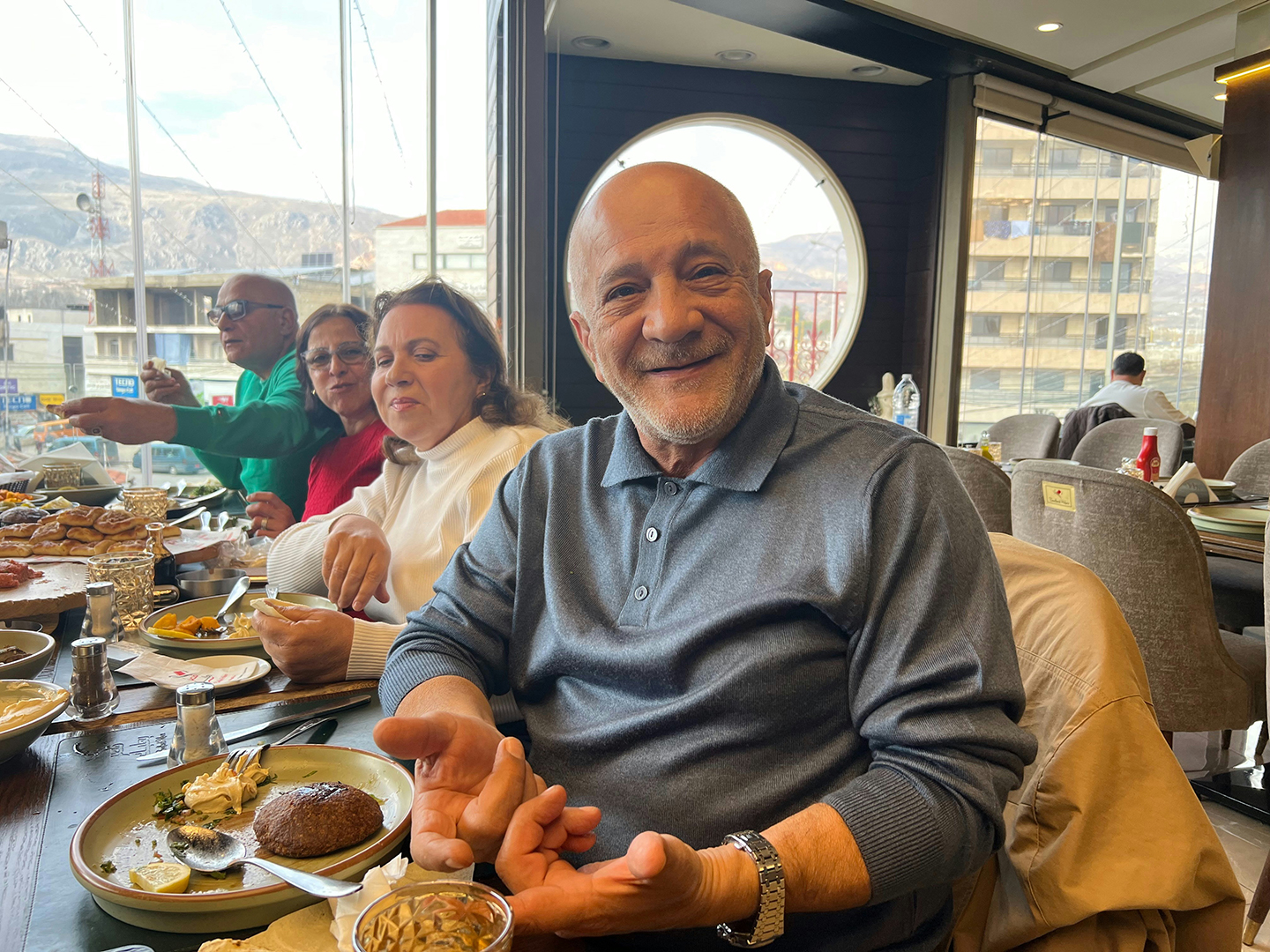
In Turkish dining culture, meals are much more than just eating; they’re a special time to connect with others. While silence during a meal isn’t seen as rude, light conversation and small talk are definitely appreciated.
Chatting about daily life, sharing stories, or even complimenting the host creates a warm, welcoming atmosphere that makes everyone feel comfortable and valued.
Saying “Afiyet olsun” before and after eating adds to the friendly vibe, showing respect and wishing well for the meal.
Turkish meals usually happen at a relaxed pace, giving plenty of time to enjoy both the food and the company. Whether it’s a family dinner or a business lunch, some gentle conversation helps keep things lively without feeling forced.
Of course, quiet moments happen naturally, and that’s perfectly fine too. Overall, a balance of pleasant talk and comfortable silence makes the dining experience truly enjoyable and respectful.
8. Shared Plates, Shared Bonds
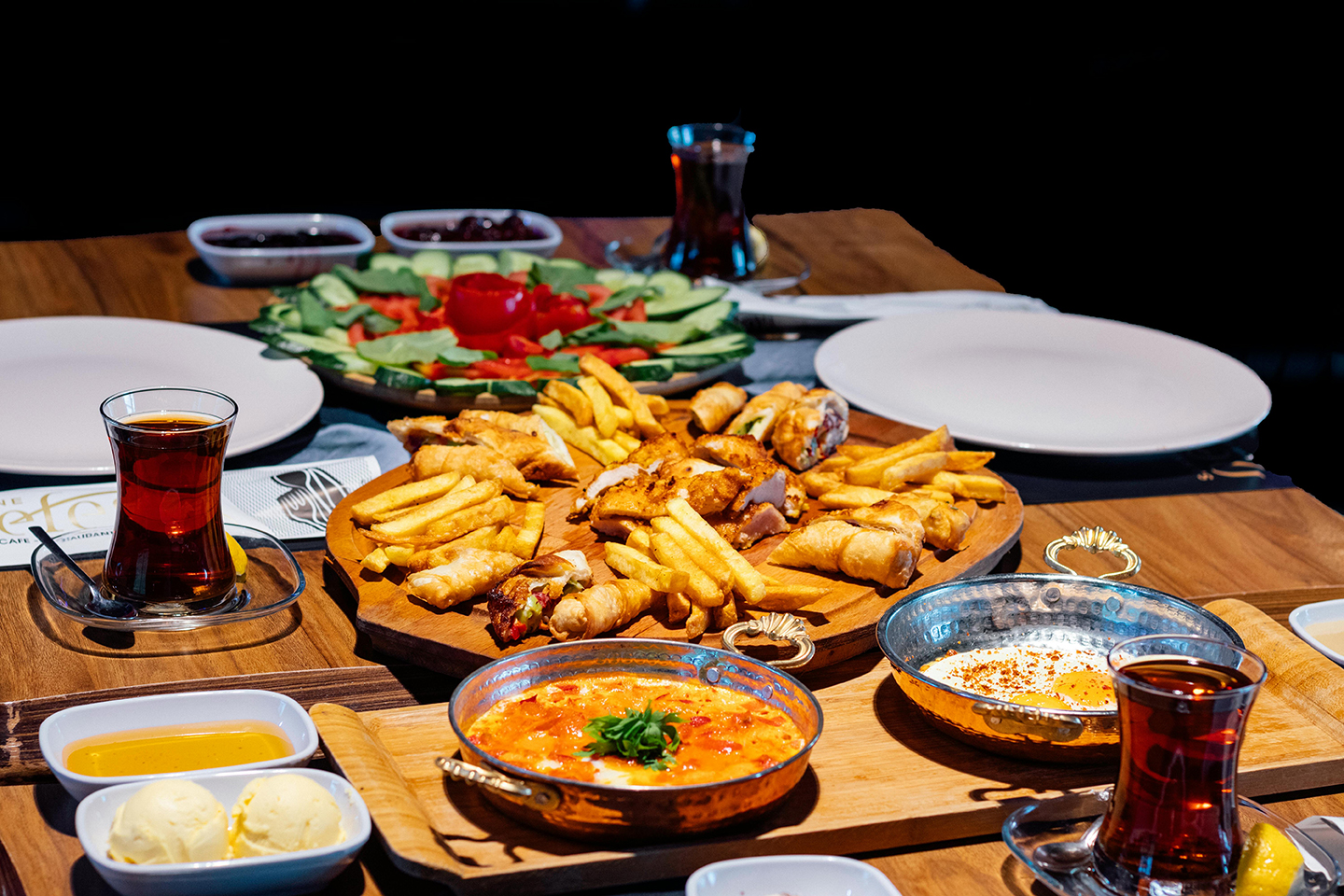
In Turkish dining, sharing plates is more than just a way to eat; it’s a beautiful tradition that brings people closer together. Meals are often served family-style, with dishes placed right in the middle of the table for everyone to enjoy.
This setup naturally encourages conversation and creates a warm, friendly atmosphere where everyone feels connected. It’s also polite to offer food to others, especially elders or guests, before serving yourself, which shows respect and kindness.
Being mindful at the table is important too. In Turkish culture, it’s considered respectful to avoid reaching over someone else’s plate and to finish what’s on your own plate as a sign of gratitude. Sharing food and stories around the table helps build bonds and makes the dining experience special.
So, when you’re invited to a Turkish meal, get ready to enjoy not just delicious food, but also great company and meaningful moments together!
9. From Meze to Main Course
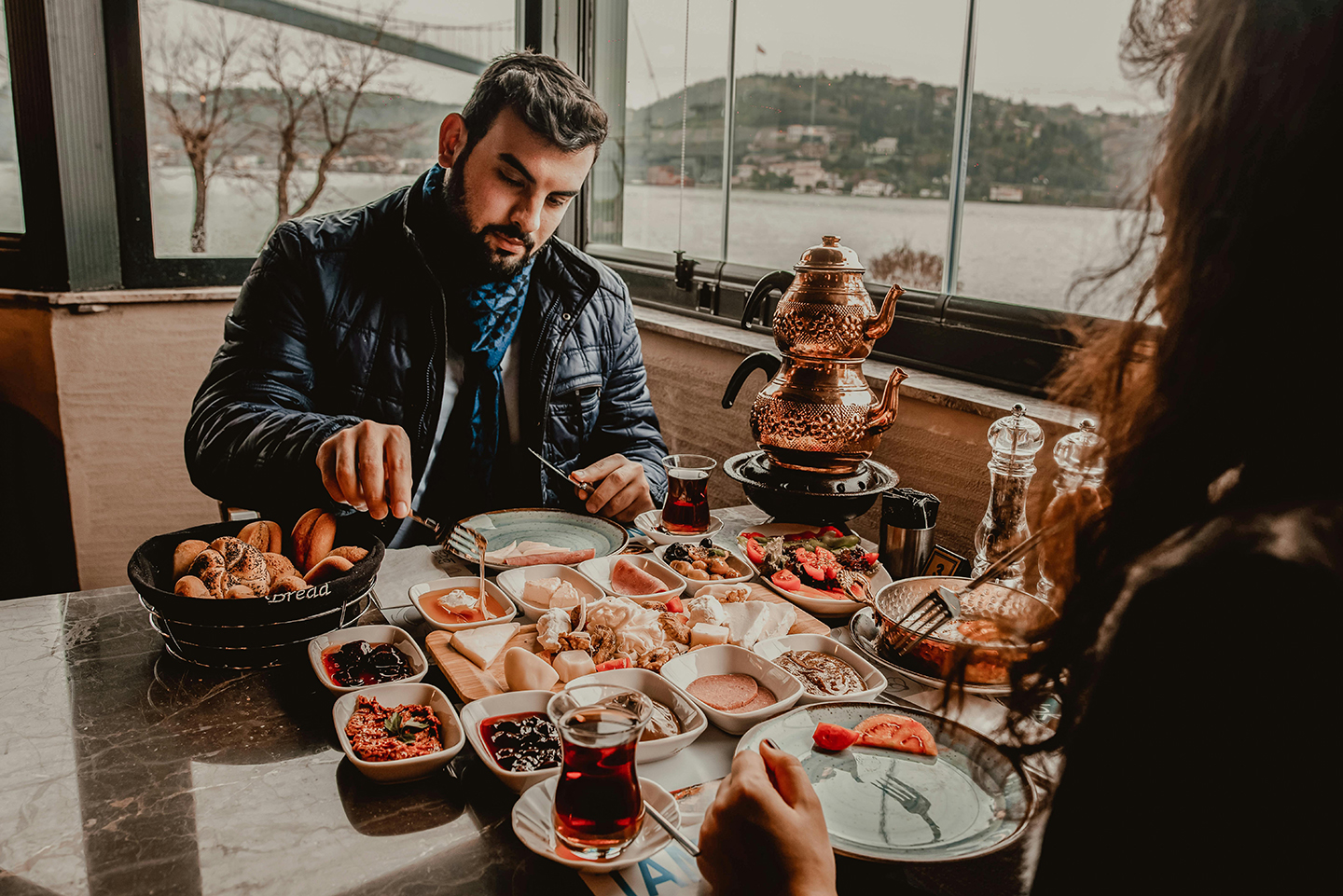
In Turkish dining, the meal travel begins with meze; a colorful spread of small, flavorful appetizers meant to be shared by everyone at the table. Think of dishes like creamy hummus, smoky eggplant salad, and tangy white cheese, all perfect for nibbling while enjoying good company.
Meze is often paired with a refreshing glass of raki, adding a special touch to the start of the meal. It’s a warm and inviting way to ease into the dining experience, setting the tone for lively conversation and connection.
After enjoying the meze, the main course takes center stage, usually featuring delicious kebabs, hearty stews, or comforting casseroles. Kebabs, with their marinated grilled meat and tasty sides, are a true Turkish classic.
An important tradition is waiting to start eating until the oldest man at the table begins; a respectful and thoughtful custom.
And throughout the meal, sharing is key, along with polite expressions like “Afiyet olsun!” to wish everyone enjoyment and “Elinize sağlık!” to thank the cook. Turkish meals are truly about more than food; they’re about coming together and celebrating friendship and hospitality.
10. Turkish Table Etiquette
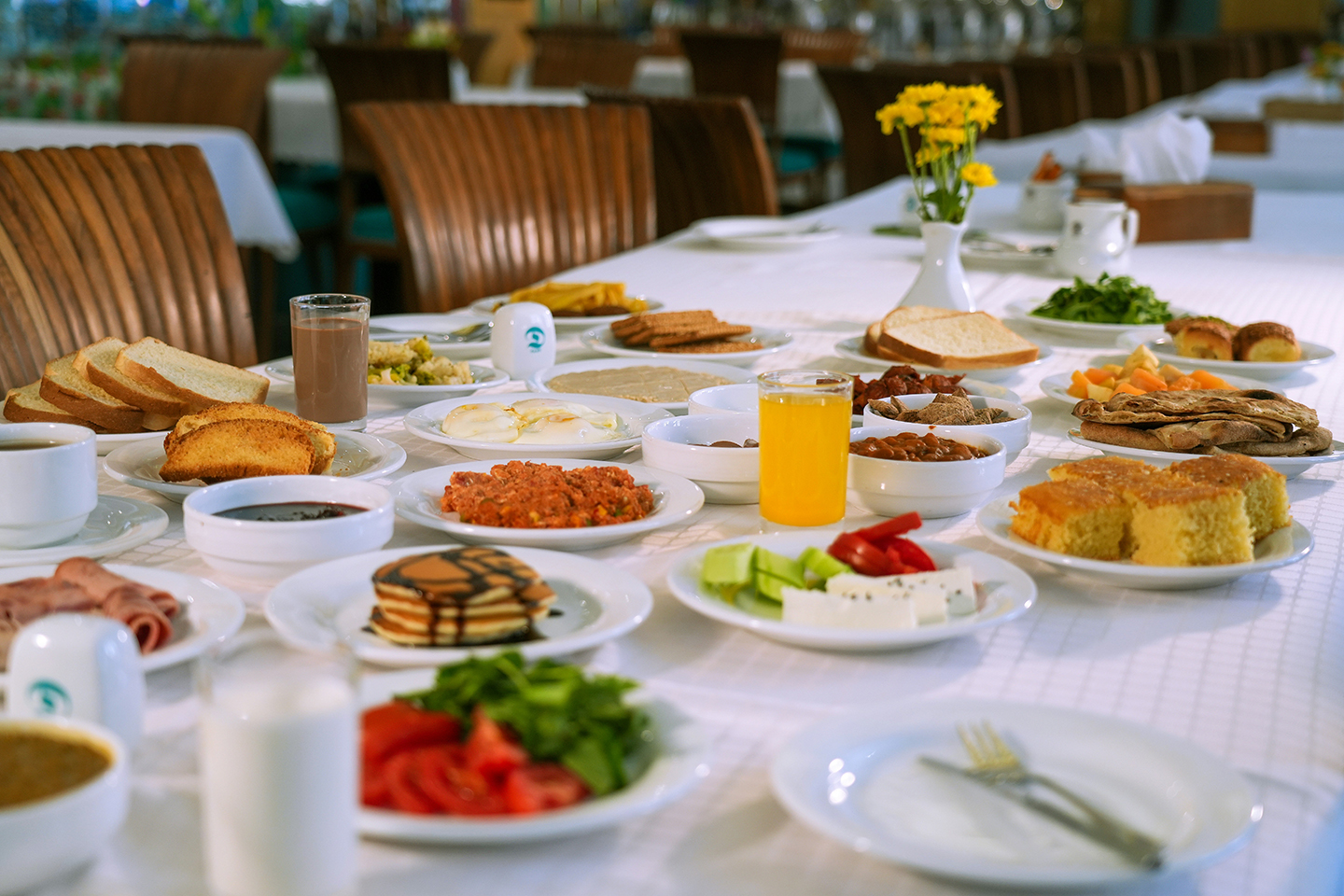
Dos
Wash your hands before eating, especially if you’re not using utensils. It’s common and shows respect.
Use utensils properly: Hold your knife in the right hand and fork in the left. When finished, place them side-by-side on your plate to signal you’re done.
Accept food and drink graciously. Turks often offer multiple servings; try to accept as much as you can, even if you don’t finish it all.
Finish everything on your plate as leaving food is considered wasteful and disrespectful.
Fill your neighbor’s tea or coffee glass, never your own, and be prepared for it to be refilled frequently.
Say polite phrases like “Afiyet olsun” before eating and “Teşekkür ederim” (thank you) when the meal ends.
Don’ts
Don’t use your left hand when eating, as it’s considered impolite.
Avoid reaching over others’ plates or placing feet where others can see the soles; it’s disrespectful.
Don’t start eating until the oldest man has begun.
Avoid crossing your legs when sitting, especially if facing others, as it can be seen as improper; this is especially important for women.
Don’t place utensils on the table when done; always place them neatly on your plate.
Avoid standing with hands on hips or in pockets at the table, as it’s considered rude body language.
Don’t ignore social cues from hosts or elders about when to change dishes or move on to the next course.
Turkish Dining Etiquette: A Recap
Dining in Turkey isn’t just about what’s on the plate; it’s about who’s at the table, how the food is shared, and the respect linked into every moment. From saying “Bismillah” before a bite to lingering over endless cups of tea, every part of the meal reflects deep cultural values like hospitality, gratitude, and connection.
Whether you’re removing your shoes, waiting for the eldest to begin, or filling someone else’s tea glass before your own, these small gestures say something big: you’re welcome, you’re cared for, and you belong here.
So, next time you’re invited to a Turkish table, come with an open heart, a curious palate, and a warm smile; because every meal in Turkey is an invitation to friendship.




